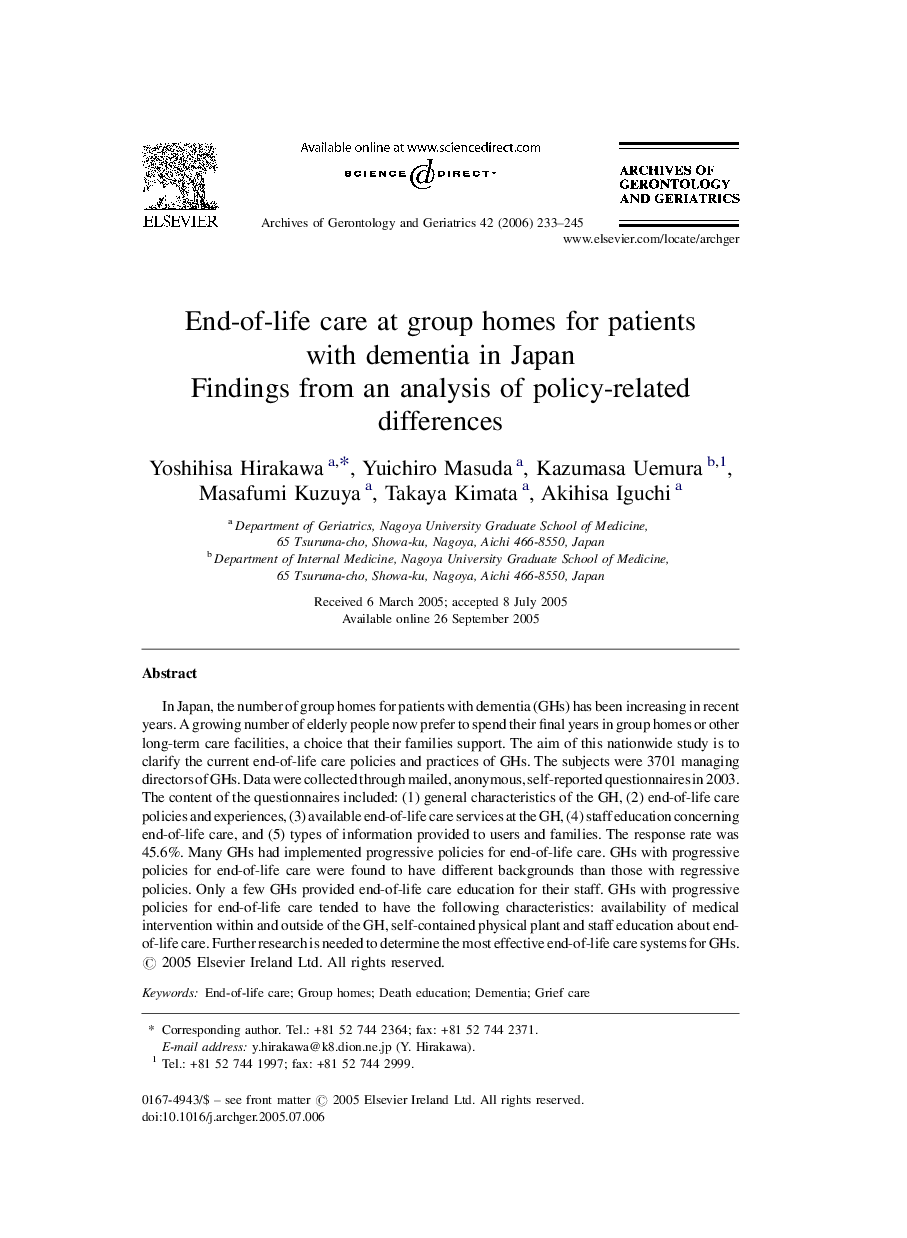| Article ID | Journal | Published Year | Pages | File Type |
|---|---|---|---|---|
| 1904260 | Archives of Gerontology and Geriatrics | 2006 | 13 Pages |
In Japan, the number of group homes for patients with dementia (GHs) has been increasing in recent years. A growing number of elderly people now prefer to spend their final years in group homes or other long-term care facilities, a choice that their families support. The aim of this nationwide study is to clarify the current end-of-life care policies and practices of GHs. The subjects were 3701 managing directors of GHs. Data were collected through mailed, anonymous, self-reported questionnaires in 2003. The content of the questionnaires included: (1) general characteristics of the GH, (2) end-of-life care policies and experiences, (3) available end-of-life care services at the GH, (4) staff education concerning end-of-life care, and (5) types of information provided to users and families. The response rate was 45.6%. Many GHs had implemented progressive policies for end-of-life care. GHs with progressive policies for end-of-life care were found to have different backgrounds than those with regressive policies. Only a few GHs provided end-of-life care education for their staff. GHs with progressive policies for end-of-life care tended to have the following characteristics: availability of medical intervention within and outside of the GH, self-contained physical plant and staff education about end-of-life care. Further research is needed to determine the most effective end-of-life care systems for GHs.
